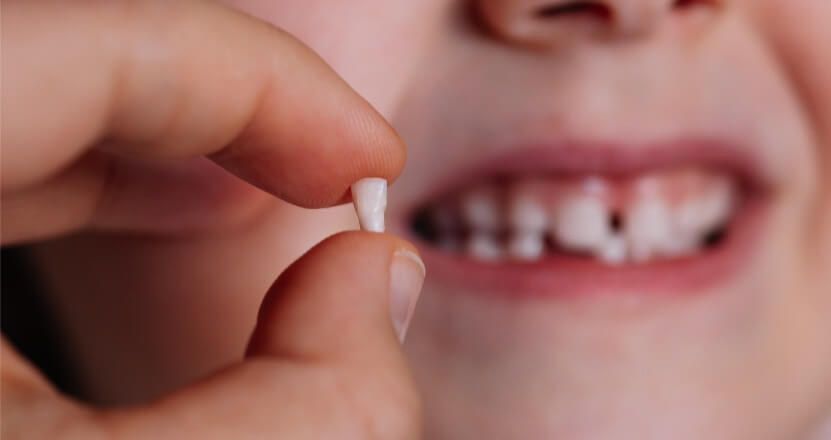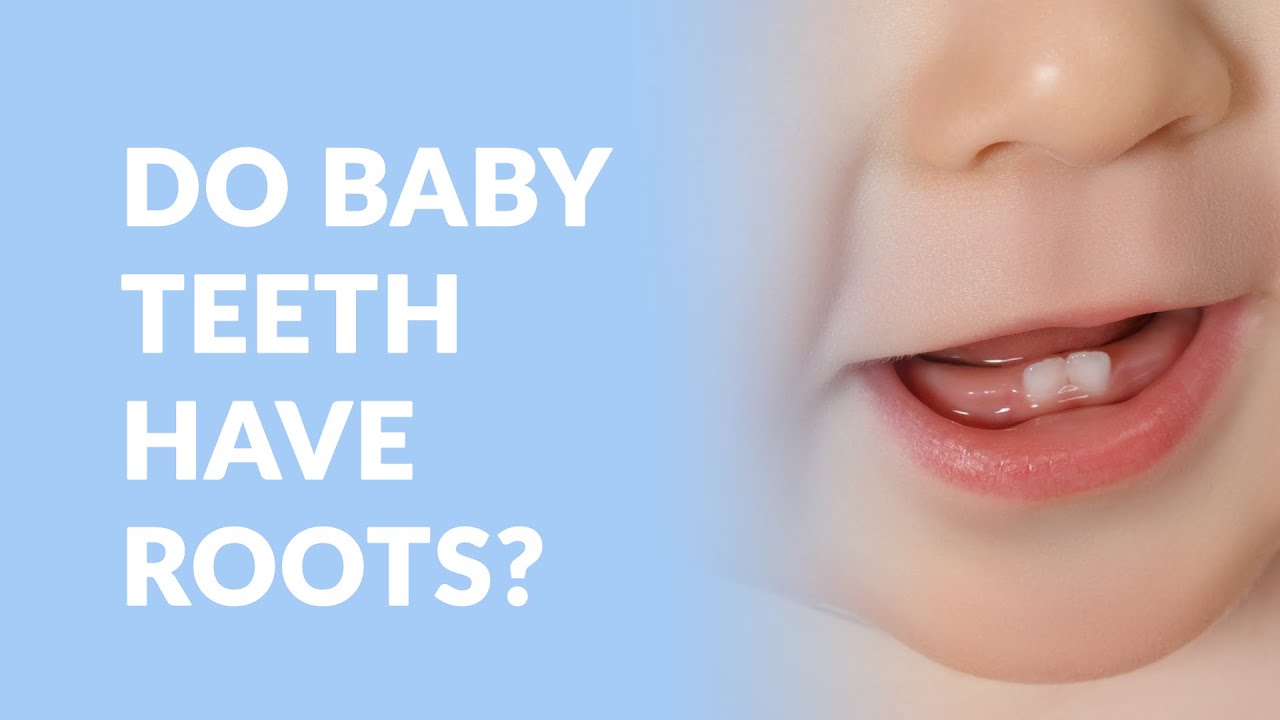Do Baby Teeth Have Roots? Yes, baby teeth do have roots. Baby teeth are also known as primary or deciduous teeth and they begin to appear in the mouth at around 6 months of age. The process is completed by 3 years old when all 20 primary teeth should be present.
These primary teeth have both crowns (the part of the tooth visible in the mouth) and roots which anchor them into the jaw bone. The shape and length of these roots vary depending on where they are located in the mouth with molars having larger, longer roots compared to front incisors that have shorter, thinner ones.
The baby teeth that children have when they are born do indeed have roots, but these roots are much smaller than those of permanent adult teeth. While the roots of baby teeth help hold them in place until they fall out naturally, they typically don’t reach as far down into the jawbone as permanent tooth roots would. As a result, it’s important to take care of your child’s baby teeth and keep their oral hygiene habits intact so that their adult teeth will eventually emerge healthy and strong.
Baby Tooth Fell Out But Root Still in
If your child’s baby tooth fell out, but the root is still in the gum, it’s important to take them to a dentist for an examination. The dentist can determine whether or not the root needs to be removed and if so, will provide a procedure for doing so. It is important that this happens as soon as possible, because leaving a dead root in place can increase the risk of infection and decay of other teeth down the line.

Credit: acpediatricdentistry.com
What Happens to Baby Teeth Roots?
When a baby tooth falls out, the root of that tooth is no longer needed. The roots of the baby teeth are resorbed by the body and replaced with bone over time. This process is known as replacement resorption and it begins soon after the tooth has been lost.
As soon as a baby tooth is gone, its periodontal ligaments begin to dissolve, which allows for movement between neighboring teeth and eventually causes them to drift together into their new positions. During this process, cells from inside the jawbone called osteoclasts move in to break down any remaining pieces of root material left behind from the fallen baby tooth so that they can be used elsewhere in the body or simply recycled back into calcium for other functions within your body’s system. Replacement resorption helps ensure that all adult teeth have enough room to come into proper alignment when they arrive later on in life – making sure you have a beautiful smile!
Do Baby Teeth Have Nerves Or Roots?
Baby teeth, also known as deciduous or primary teeth, are the first set of teeth to develop in a child’s mouth. Although baby teeth usually fall out and are replaced by adult (permanent) teeth later on in life, they still play an important role in a child’s development. But do baby teeth have nerves or roots?
The answer is yes! Baby teeth may be smaller than permanent ones but still contain all the same components; including both nerves and roots. The nerve endings inside each tooth provide sensation such as pain when exposed to heat or cold.
While there can be a few variations among individuals, typically most baby molars will have three root canals while incisors will only have one single root canal with two branches at its apex. It’s important to take care of your little one’s baby teeth since it helps maintain good dental hygiene and healthy development which sets up their oral health for success down the road!
What Happens If a Baby Tooth Fragment is Left in the Gum?
If a baby tooth fragment is left in the gum, it can cause discomfort and pain for your child. It is important to have these fragments removed by a dentist as soon as possible, to prevent any potential problems that may arise from leaving them in place. The fragment could become infected or inflamed, leading to further dental issues such as decay or cavities.
Additionally, if not removed promptly the baby tooth fragment can also interfere with proper eruption of permanent teeth and lead to misaligned teeth if left unchecked. Without prompt action taken, this issue can easily become worse down the line and cost you more money in the long run due to restorative treatments that may be necessary later on. To avoid any potential complications make sure you bring your child for regular check-ups so their oral health remains healthy.
Do baby teeth have roots? Why are they important? | AC Pediatric Dentistry & Orthodontics
Conclusion
In conclusion, baby teeth have roots just like adult teeth. These roots help to hold the tooth in place until it can be replaced by a permanent tooth. It is important for parents and caregivers to take good care of their children’s baby teeth as healthy habits that start early can lead to better dental health later on in life.
Overall, understanding how baby teeth develop and grow helps us appreciate why they are so important and should be well taken care of!





